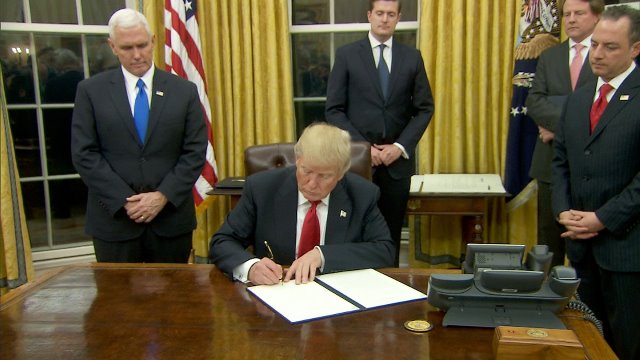Two Republican senators are set to introduce legislation Monday to replace Obamacare amid mounting pressure on the GOP to craft an alternative to the massive healthcare law.
Sens. Susan Collins of Maine and Bill Cassidy of Louisiana will unveil a bill that they are describing as an “Obamacare replacement plan.” In a statement, the duo promised that the proposal would give more power to the states on health care policy, increase access to affordable insurance and help cover millions of Americans who are currently uninsured.
The final text of the bill won’t be released until Monday and it is not clear whether the legislation, which is based on a measure Collins and Cassidy introduced in 2015, would garner backing from party leadership.
But it is another sign that Republican lawmakers are increasingly feeling the heat to show how they would replace what they roll back the Affordable Care Act. Former President Barack Obama’s signature health care law covers some 20 million people and emerged as one of the most politically divisive issues of his presidency.
The fear is that taking action to repeal the law would create deep instability in the insurance markets and potentially result in millions of people’s coverage being disrupted or taken away.
Collins, a moderate Republicans, has been particularly vocal in insisting that Republicans should not vote to repeal major parts of Obamacare until there is clarity on a replacement plan.
“Some of my colleagues have argued for immediate repeal without any replacement, an option that I reject for it risks leaving millions of vulnerable Americans without affordable health insurance and would undo important consumer protections provided by current law,” Collins said on the Senate floor last week.
Republicans in Congress have already begun the process of overhauling the law. On Day One of the new Congress, Republican senators used a budget maneuver to start the repeal process, although a final repeal bill is not likely to land on President Donald Trump’s desk for some weeks, even possibly months.
And within hours of being sworn in as president, Trump issued an executive order that could eventually have wide-ranging impact on Obamacare. Among other things, it directs the secretary of health and human services and agencies to interpret regulations as loosely as allowed under the law to minimize the burden on individuals, insurers, healthcare providers and others.
